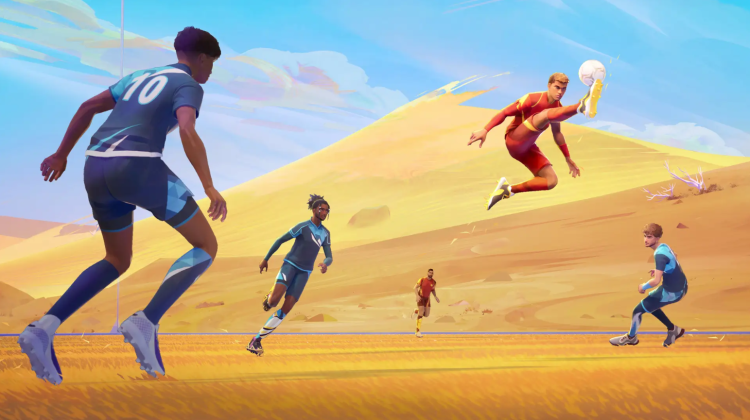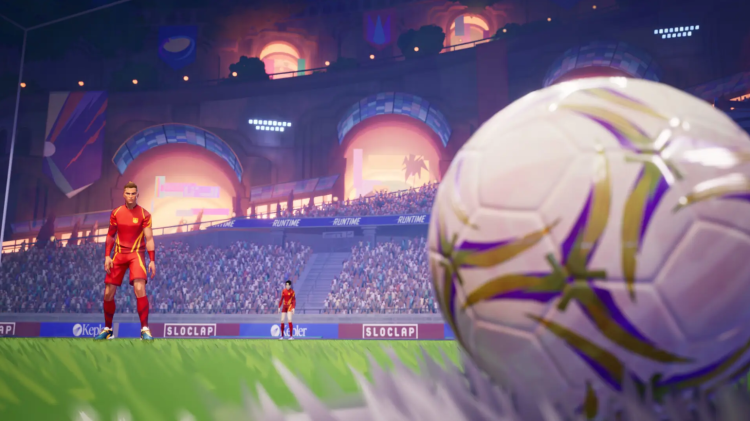Rematch Isn’t a Football Game for Football Fans—and That’s Exactly Why It Works
Rematch isn’t what you’d expect from a football game, and that’s because it wasn’t really made like one. In fact, Sloclap—the studio behind the surprise summer hit—admits that neither their developers nor their players are all that into football. And that mismatch has somehow made Rematch one of the most addictive online sports titles in years.
Sloclap CEO Pierre Tarno recently broke down what makes Rematch tick, and the key insight was simple: the game’s biggest audience doesn’t come from people looking to simulate real-life football. It comes from competitive gamers who want fast-paced team battles, goofy mechanics, and unpredictable matches. According to internal player data, the majority of Rematch fans lean toward online multiplayer titles rather than traditional sports games. So if you've wondered why passing in your matches feels like herding cats, this is probably why.
“I don’t give a st about football, but this really struck something in me.”**
That was the blunt, honest reaction from one of Sloclap’s own devs after playing an early internal tournament. Tarno says that moment clicked for a lot of team members. The magic wasn’t in replicating a sport they didn’t care about—it was in creating fun, chaotic dynamics that stood on their own. Even the in-studio skeptics who didn’t care for football became believers once they got into matches, felt the flow of team play, and saw how well the systems clicked.

Sloclap is fully aware that this unorthodox audience presents both a strength and a challenge. Right now, Rematch thrives because it appeals to people who wouldn’t usually touch a football game. The community includes players who are into shooters, fighting games, or action games—people who like movement, clutch moments, and sharp learning curves. And they’ve taken to Rematch not because they wanted a better FIFA, but because the game feels more like a skill-based brawler with a ball.
We already covered this angle when Sloclap shared first details on Rematch's upcoming tournament mode, a push that aims to deepen the competitive scene and formalize the ranked grind. But Tarno’s latest insights show there’s more going on beneath the surface. The goal isn’t just to keep the current player base happy—it’s to slowly onboard more casual football fans who might not even know the game exists yet.
Right now, Sloclap sees that huge potential pool of players as totally untapped. Tarno believes these folks are out there playing FIFA and Call of Duty every night, but they’re not browsing gaming news, watching dev logs, or following release calendars. “They don’t read Eurogamer,” he says. They’re just waiting for their annual drop, and Rematch will have to sneak in the side door—likely through word of mouth, streamers, and Game Pass visibility.
Still, anyone who’s been in a Rematch lobby knows the player behavior doesn’t always scream "tactical genius." There’s been plenty of frustration from players who do know a thing or two about football. Passing? Rare. Positioning? Questionable. Goalkeepers trying to go coast-to-coast with flicks over their heads? Unfortunately common.

The tone of the community has already started to shift in ways only online gamers will understand. As reported in a separate Eurogamer piece, “Good job!”—one of the quick chat presets—has morphed from a genuine compliment to a passive-aggressive insult. When a keeper fails a dribble and concedes, you’ll hear it. When a forward refuses to pass and shanks a wild shot? “Good job!” echoes again.
That’s not to say things aren’t improving. Higher-ranked matches already see more teamwork, and Sloclap seems committed to nudging players toward better play without taking away the game’s wild unpredictability. Right now, individual stat chasing can reward solo players more than those who pass, assist, and set up plays. Fixing that could help elevate the smarter style of play and push the community toward the kind of dynamics that hooked the dev team in the first place.
As Rematch gears up for its tournament mode rollout, it’s not just building an esports—it’s building a culture. One that’s rooted more in experimentation, movement, and reaction time than football fundamentals. And somehow, that’s working. Because when the average player doesn’t know who Zlatan is but still understands the value of a clutch back-pass or last-second goal, maybe the sport doesn’t need to be real. It just needs to be fun.

Comments